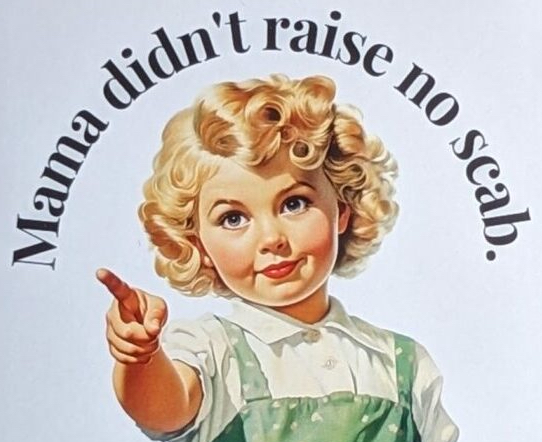|
How Organized Labor Shames Its Traitors - The Story of the ‘Scab’
|
|
|
 Aug. 31, 2024 | U.S. LABOR MOVEMENT | Over its long history, the American labor movement has displayed a remarkably rich vocabulary for shaming those deemed traitors to its cause. Some insults, such as “blackleg,” are largely forgotten today. Others, such as “stool pigeon,” now sound more like the dated banter of film noir. A few terms still offer interesting windows into the past: “Fink,” for example, was used to disparage workers who informed for management; it seems to have been derived from “Pinkerton,” the private detective agency notorious for strikebreaking during mass actions like the Great Railroad Strike of 1877. No word, however, has burned American workers more consistently, or more wickedly, than “scab.” Any labor action today will inevitably lead to someone getting called a scab, an insult used to smear people who cross picket lines, break up strikes or refuse to join a union. No one is beyond the reach of this accusation… The Conversation Aug. 31, 2024 | U.S. LABOR MOVEMENT | Over its long history, the American labor movement has displayed a remarkably rich vocabulary for shaming those deemed traitors to its cause. Some insults, such as “blackleg,” are largely forgotten today. Others, such as “stool pigeon,” now sound more like the dated banter of film noir. A few terms still offer interesting windows into the past: “Fink,” for example, was used to disparage workers who informed for management; it seems to have been derived from “Pinkerton,” the private detective agency notorious for strikebreaking during mass actions like the Great Railroad Strike of 1877. No word, however, has burned American workers more consistently, or more wickedly, than “scab.” Any labor action today will inevitably lead to someone getting called a scab, an insult used to smear people who cross picket lines, break up strikes or refuse to join a union. No one is beyond the reach of this accusation… The Conversation
|
|
|
|